NEW DELHI, Oct 14: The national security advisers of India and Pakistan, who turned out to be old friends from their Track II days, struck a positive note for peace on Tuesday, agreeing at the end of their two-day talks here that their main problems were “internal rather than external”. To that extent both the countries had to address the social fault lines within their domestic boundaries, if possible with each other’s help.
Sources said the two sides discussed every possible difficult issue frankly but cordially, including their stakes in Afghanistan, the issue of Kashmir, of Sir Creek and Siachen, allegations of fomenting terrorism by each against the other, water sharing and trade.
Speaking at a dinner for Pakistan’s national security adviser Mahmud Ali Durrani, his Indian counterpart M.K. Narayanan confessed that he had been sceptical about claims that India shared a common destiny with Pakistan, but after his current talks with Mr Durrani he felt compelled to change his mind.
“I told the prime minister (Mr Manmohan Singh) after today’s talks that I agree with you sir that we share a common destiny with Pakistan,” Mr Narayanan said.
Even before the dinner speeches Pakistani diplomats were unusually lavish, saying they had not experienced this kind of positive energy in bilateral talks with India in recent years.
Perhaps a crucial pointer in Mr Narayanan’s remarks, when he responded to comments earlier by Mr Durrani and the host, Pakistan’s High Commissioner Shahid Malik, came when he expressed his keenness to “set the seal on what the leadership and our people are prepared for” during the remaining tenure of the UPA government.
This was taken to indicate that at least one or several of the “doable” deals could be attempted soon. However, given the Indian opposition’s recent warning to Mr Singh not breach a 1994 parliament resolution that proclaims the entire state of Jammu and Kashmir as an integral part of India an early resolution of the core dispute is difficult to envisage even with the goodwill that now seems to exist between the two countries.
Yet some concrete progress may not be as distant as it looks. Dawn has learnt from reliable sources close to the talks that backchannel interlocutors – Pakistan’s Tariq Aziz, who has been persuaded to stay on for the key Kashmir talks, and India’s S.K. Lambah -- would be meeting again to pick up the thread from the substantial progress they had already made under former president Pervez Musharraf’s supervision.
Mr Durrani, who was ambassador to the United Stated in the Musharraf government, was forthright about why he was given the job. “I can tell you that the main reason why the PPP government decided to ask me was because of my excellent relations with India.” An old India hand, Mr Durrani said visiting New Delhi always brought a smile to his face. “I have some of my best friends here.”
High Commissioner Malik said: “The two days of talks have been most useful as they have strongly indicated the desire on both sides to move forward with the peace process. The talks have removed a number of misgivings. They have made the task of the high commission much easier.”
A joint press communiqué gave a listless account of the real event, saying the NSAs “reviewed the status of bilateral relations against the backdrop of recent summit level meeting between the leadership of both countries”.
It said the discussions were held in a “very cordial atmosphere (and) covered all issues of mutual concern and interest, including the regional situation. The discussions were most productive.”
The NSAs “affirmed the utility of a dialogue of this nature and regarded their discussions as providing an important channel of communication between the highest levels in the two governments.”
Mr Durrani called on Prime Minister Singh and Foreign Minister Pranab Mukherjee. He also held talks with Indian Foreign Secretary Shivshankar Menon. He extended an invitation to Mr Narayanan to visit Pakistan, “which was accepted with pleasure.”
Earlier, talking to reporters, Mr Durrani denied claims that ISI was involved in the July bombing of the Indian embassy in Kabul.

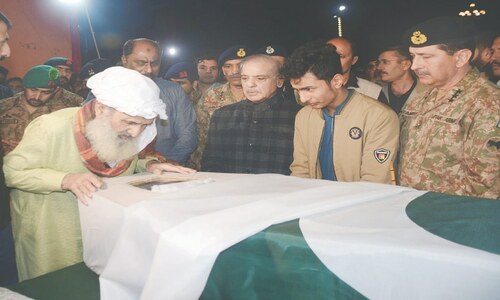
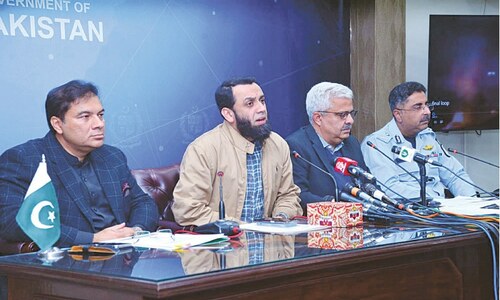












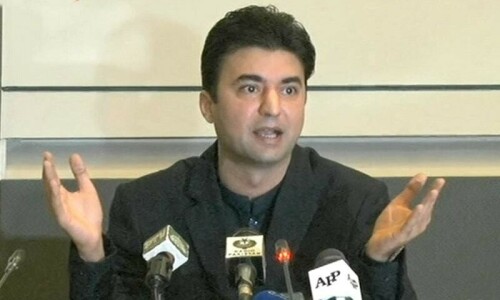
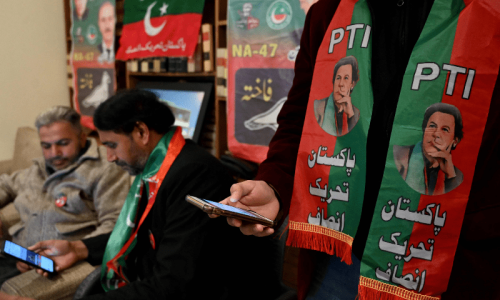


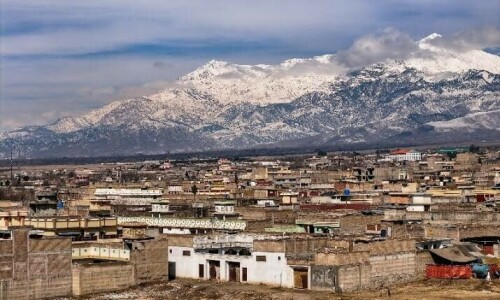
























Dear visitor, the comments section is undergoing an overhaul and will return soon.